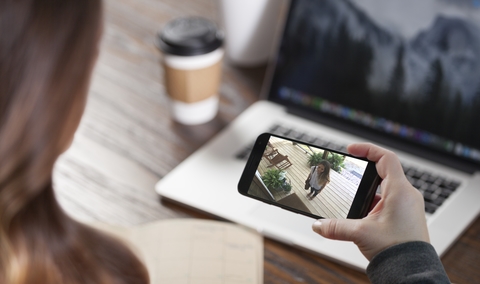FierceRetail :
Lowe's expands technology for senior care

Lowe's Iris Care allows for at-home senior care.
Some of the ways in which members can use Iris Care include:
1. Triggering an alarm if a door is left open for a period of time.
2. Informing a contact if a loved one has taken medication using a medicine cabinet sensor.
3. Indicating when a loved one has not moved or gotten up from bed.
Care has been a feature of Iris since Lowe’s launched the smart home platform in 2012. But over the past five years, the Iris team has been refining and enhancing the service, introducing new compatible devices (Iris-branded and third party) and rules.
"We are constantly hearing on social media, in the Iris community and in reviews how our customers use Iris to help look after loved ones," Mick Koster, vice president and general manager of Iris Home Systems, told FierceRetail. "Customers express their gratitude for achieved peace of mind, but most importantly show their appreciation for helping monitor their loved ones’ wellbeing in their homes and allowing them to stay in their homes longer than might have otherwise been possible."
Although some consumers might be wary of how to use the Iris technology, Koster says it is designed for easy setup and use, with a single mobile app to manage home management and security needs.
"In fact, Iris has DIY in its DNA, meaning you can build your smart home at your own pace, based upon you or your loved one's needs," Koster said.
When smart home technology launched a few years ago, customers were primarily looking into energy efficiency and some basic home automation. But today, Koster says customers are using the systems to secure their homes and keep their loved ones safe.
RELATED: Lowe's expands smart home solution
He expects that as the smart technology becomes more affordable and the offerings become more expansive, adoption will continue to grow among consumers.
"No longer is smart home technology solely for the early adopter or the rich and famous; consumers are coming on board because smart homes are becoming more approachable, accessible and, most importantly, more affordable," Koster said.
Especially with the expanding popularity of products like Google Home and Amazon Echo, customers are starting to see the benefits of interfacing with voice-activated technology.
"In addition to serving as an easy entry point to the market, smart speakers help consumers realize that smart home technology isn’t so intimidating and is actually quite useful," Koster said. "By integrating our technology with Google’s, everyone can now enjoy the benefits of controlling your devices just by speaking."
RELATED: Lowe's launches home security solution
Moving forward, Lowe's is well positioned to deliver the state-of-the-art platform.
"We’ll see more of this play out throughout next year as we expand the features, integrations and services available through Iris to bring smart homes and home improvement closer together," he added.